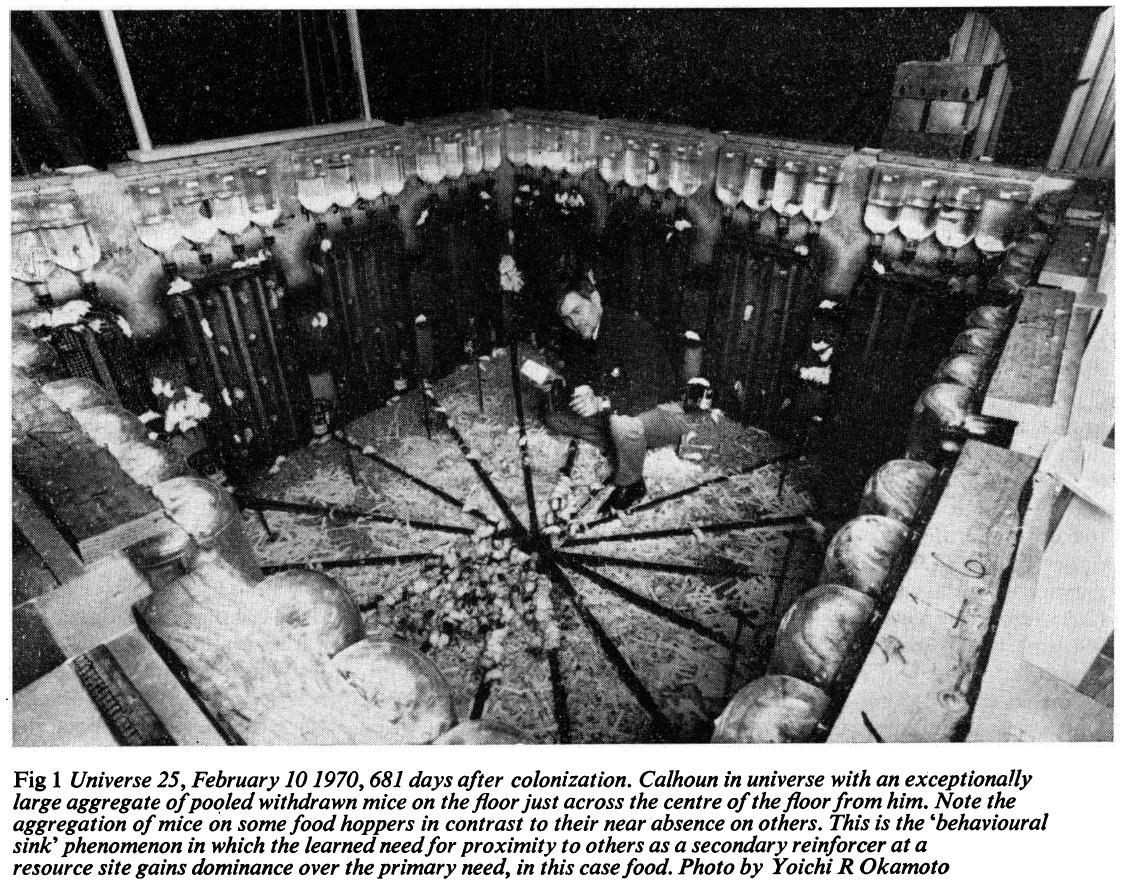In Cabinet, Will Wiles recalls the work of John B. Calhoun, a scientist who used rodents to study the effects of overpopulation. Despite Malthusian hand-wringing, population density seems to be a good thing overall for humans. An excerpt:
“So what exactly happened in Universe 25? Past day 315, population growth slowed. More than six hundred mice now lived in Universe 25, constantly rubbing shoulders on their way up and down the stairwells to eat, drink, and sleep. Mice found themselves born into a world that was more crowded every day, and there were far more mice than meaningful social roles. With more and more peers to defend against, males found it difficult and stressful to defend their territory, so they abandoned the activity. Normal social discourse within the mouse community broke down, and with it the ability of mice to form social bonds. The failures and dropouts congregated in large groups in the middle of the enclosure, their listless withdrawal occasionally interrupted by spasms and waves of pointless violence. The victims of these random attacks became attackers. Left on their own in nests subject to invasion, nursing females attacked their own young. Procreation slumped, infant abandonment and mortality soared. Lone females retreated to isolated nesting boxes on penthouse levels. Other males, a group Calhoun termed ‘the beautiful ones,’ never sought sex and never fought—they just ate, slept, and groomed, wrapped in narcissistic introspection. Elsewhere, cannibalism, pansexualism, and violence became endemic. Mouse society had collapsed.” (Thanks Longreads.)
••••••••••
Ratsploitation, 1972:
Tags: John B. Calhoun, Will Wiles

